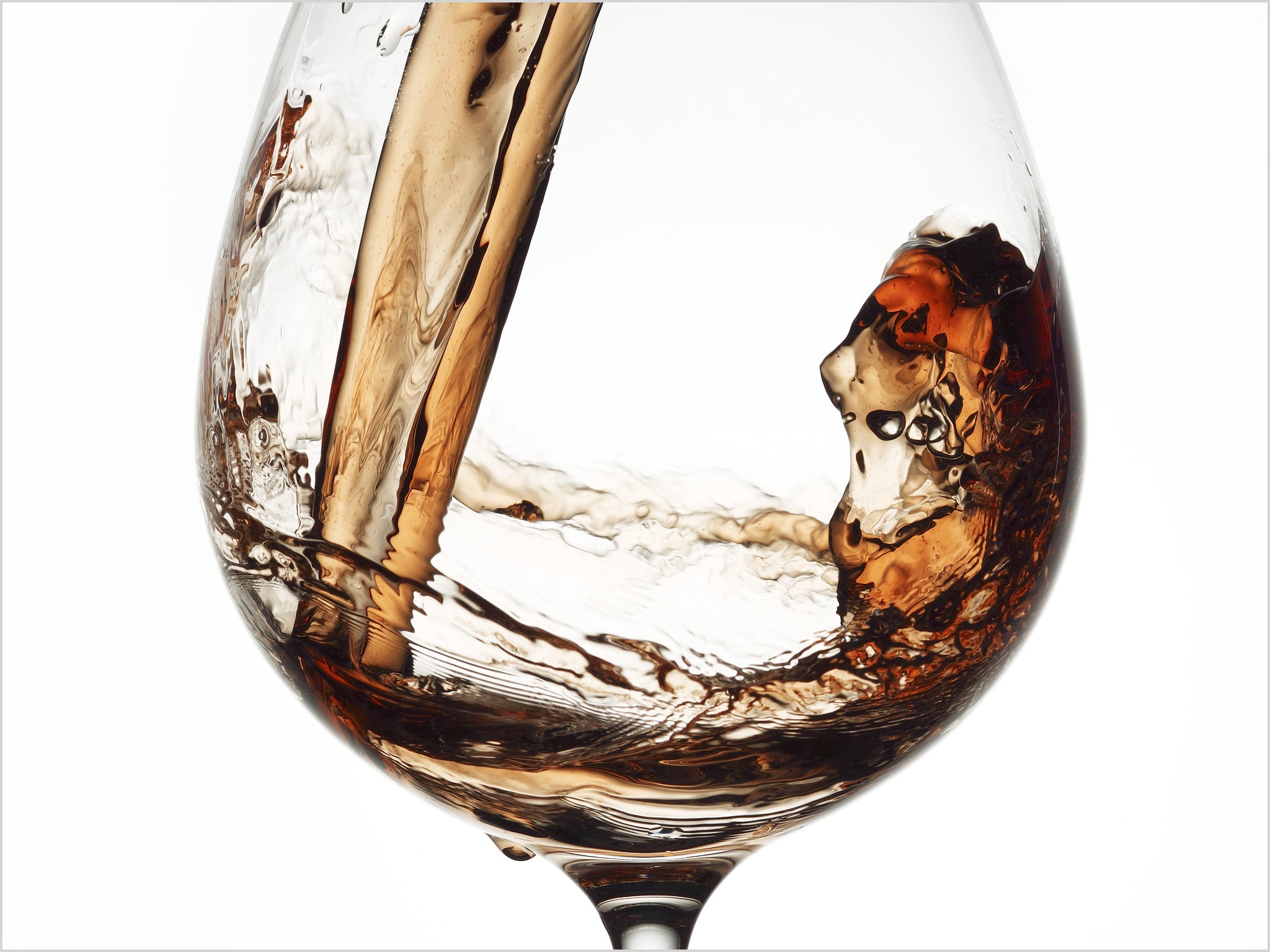Gripes about grapes as EU says Croatian Prosek wine sounds too much like Italian Prosecco
Latest member of the European Union has been given early taste of union's more unpalatable laws

Andro Tomic raised a glass of his beloved Prosek while underwater in a sight-seeing submarine, looked at the rich, amber wine and wondered wryly whether it was the only place where it may be safe from the reach of the bureaucracy of Brussels.
Prosek has been an intrinsic part of the social culture of these parts, the skills of production, from a variety of grapes planted centuries ago, passed down through generations, the drink of choice at private and public celebrations.
But all that is now in jeopardy. Croatia, the latest member of the European Union, has been given an early taste of one of the union's more unpalatable laws. Prosek, it has been decided, sounds too much like the Italian Prosecco and must be given a new identity. The fact that it is a heavy desert wine while the latter is light and sparkling does not cut any ice with the officials: rules, they points out, are rules.
Mr Tomic, whose wines have won international awards, was on board a bright red miniature submarine, recently launched to provide sight-seeing for visitors to Hvar. The island on the Adriatic is doing extremely well out of the tourist trade. As well as miles of azure blue seas, valleys carpeted by wildflowers, Unesco World Heritage sites and arts festivals, Prosek, the locals point out, is one of reasons for the attraction.
"We are bewildered by this, the two wines are so different, there is no reason for confusion" protested Mr Tomic. "There is no question of us copying the Italians - these grapes, these wines have been around for hundreds of years. This is part of our heritage. I would like these officials to tell me why they have taken this position, it makes no sense."
The explanation came from a spokesman the EU Agricultural Commission: "The rules are clear that a product which bears a name very similar to a product which is already on the market, and has the protection of EU law, should not also be in the market. To do so could create confusion among customers and mislead them. The producers of Prosecco would be right to be concerned."
Josip Filipovic, who is considering investing in leisure facilities in Hvar, found the EU stance risible. "Obviously the public in the EU must get easily confused with names. Then, one must ask, why wasn't Romania asked to change its name when it joined. Imagine a family from Germany looking forward to a week in Rome ending up in Bucharest by mistake. What about Slovakia and Slovenia, surely one of them should have been given another name as well?
"No, this is to do with Italians. Their economy is not doing too well, just trying to keep out any kind of competition, even from a wine which is nothing like Prosecco. We only hope that the EU doesn't bring in more such rules, Hvar is doing well, and we don't want the economy here getting damaged."
Named as one of the top ten desirable island holiday destinations by Conde Nast Traveller, with an energetic tourist board, the island appears to be doing very well indeed. Social 'A list' visitors in recent times have included Clint Eastwood, George Clooney, Jack Nicholson, Stephen Spielberg and the Beckhams. Among the yachts moored on the marina have been those of King Abdullah of Jordan, Bill Gates and Roman Abramovich. Prince Harry had fallen into the water at a party following, it is claimed, a few too many Proseks.
The grapes for Proseks, according to Croats, were brought to Hvar by the Greeks in 4th Century BC. There is, however, an Italian connection to the wine trade for which it has become renowned, with the Venetian empire which captured the island in the 12th Century introducing advanced viticulture of tis time.
At his winery in a Jelsa, a particularly pretty part of the island where he produces Hektorovic, the country's finest Prosek according to many, Mr Tomic explained the very individual way the wine is produced using the passito method from grapes which have been dried to concentrate their juice which yields the sweet taste.
"It is something special to this area, Dalmatia. But we have always been very keen to share it with others. We have always welcomed people from the outside to come, not just the rich, but all different types, " said Mr Tomic, who also produces other award-winning wines that are being exported. "I am in favour of the EU, I am in favour of opening up and the opportunities it will bring. But we do not like these rules. But it is not just the fault of the EU."
"Croatian officials should have protected Prosek more during accession negotiations. Now they are sending instructions to 'harmonise' production of the wine which, he feels, may harm quality. "They want us to adopt some practices which are not beneficial. The winegrowers must get together and decide what to do. We can't give up" he said pouring out generous measures into glasses.
Paul Bradbury, from England, who settled in Hvar 11 years ago and is a keen promoter of the Hvar Wine Association, said: "One of the exciting things about going into the EU was that it would help spread recognition of Croatian wines which are making real inroads abroad now. So the controversy about Prosek was rather unfortunate. But people here are very resilient, I am sure they'll make sure Prosek survives and prospers."
Join our commenting forum
Join thought-provoking conversations, follow other Independent readers and see their replies
Comments